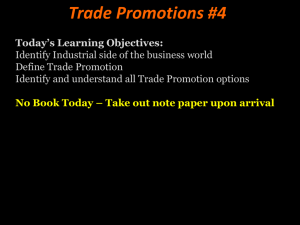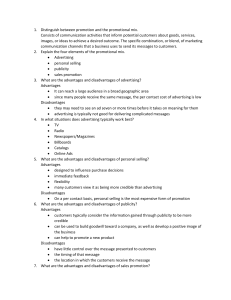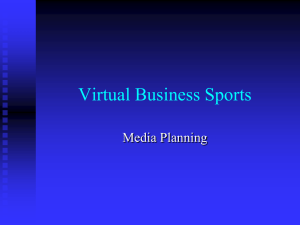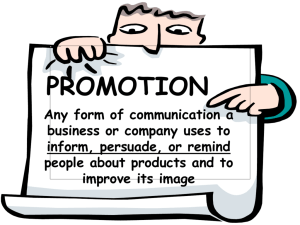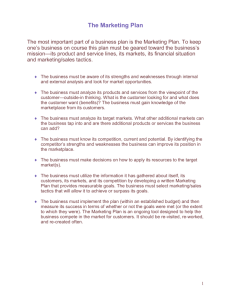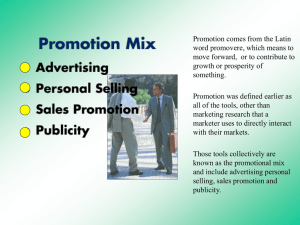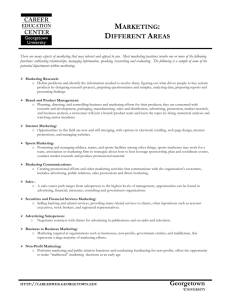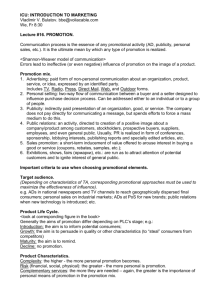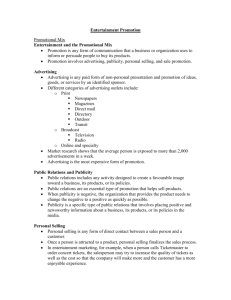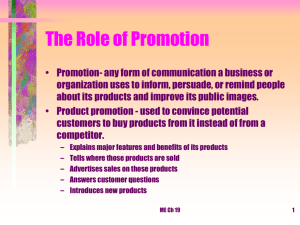Standard 2: Promotion
advertisement
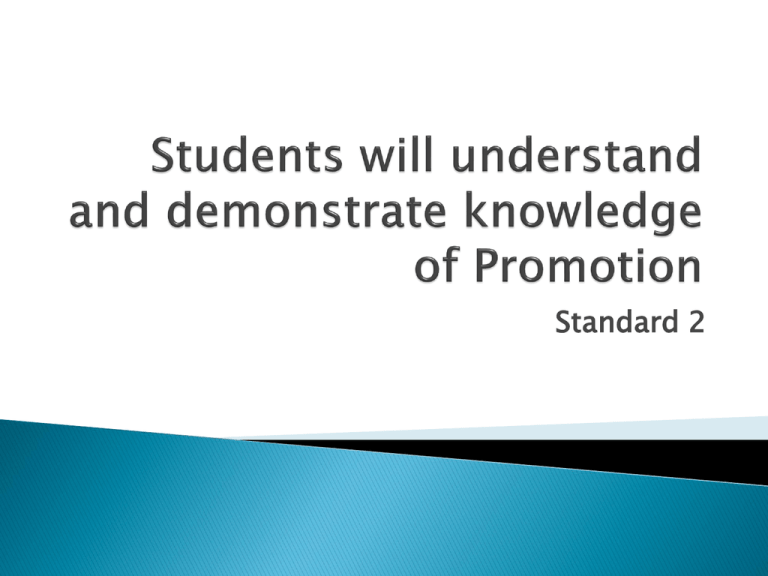
Standard 2 Understand the role of Promotion Define Promotion: ◦ Any form of communication a business or organizations uses to inform, persuade or remind. Since businesses must continually promote their organizations, products and policies to gain customer acceptance, you will need to learn successful promotional strategies. These strategies make up the Promotional Mix The promotional mix is a combination of the different types of promotion. There are four basic types of promotion: 1.Advertising 2.Publicity/Public Relations 3.Personal Sales 4.Sales Promotion Advertising is any paid form of non-personal promotion of ideas, goods or services. Advertising can be found anywhere from magazines, TV and internet to anything that is ONE-WAY communication. Public relations - The method or activities of establishing and promoting a favorable relationship with the public. Publicity is part of public relations and involves placing newsworthy information about a business, product or policy in the media. It’s mostly free. Personal sales are when individuals make contact with potential buyers face-to-face to promote their business, products or policies. Sales promotion represents all marketing activities other than the three already mentioned, like: ◦ Contests ◦ Fashion shows ◦ Coupons Used to stimulate consumer purchase immediately Factors affecting the promotional mix: ◦ Technology ◦ Economy ◦ Market ◦ Distribution Match the examples below to one of the 4 strategies in the promotional mix: (advertising, publicity, personal sales, sales promotion) 1. TV Commercial 5. contest 2. Insurance sales 6. Fashion Show 3. News release 7. Magazine Ad 4. Coupon 7. Home Tupperware Party 1. 2. 3. 4. 5. 6. 7. 8. Advertising (one-way paid communication) Personal sales Publicity Sales Promotion Sales Promotion Sales Promotion Advertising Personal Sales Advantages Disadvantages Allows large number of people to see the advertised message Can’t focus on individual needs Can be controlled Can be too expensive for many businesses Can have repeat viewers Can be inefficient (short coverage of billboards & magazines) Can pre-sale products before customers go shopping Advantages Disadvantages save a business money by extending it’s advertising budget May not be accurate or presented in the way or time that will reach the right audience Can increase a business’ profit and Can be negative or harmful to the exposure business Lack of control of content Advantages Disadvantages Personalized to individual customers Most expensive form/per sale Largest form of promotion Has slower distribution/coverage compared to advertising Easier for personal sales to focus on target market and complete the sale Advantages Disadvantages Variety of activities Short term incentives Includes many different marketing activities to stimulate consumer interest including business to business promotions Can be controlled Trade Promotions –sales promotion activities are designed to gain manufacturers’, wholesalers’ and retailers’ support for a product. More money is actually spent on promoting to businesses than to consumers. Major trade promotions include: Slotting – Buying Allowances – Trade shows & conventions - ◦ Slotting – paid by the manufacturer to the retailer for placing their new products on the shelves, store advertising and display costs. ◦ Buying Allowances – a price discount given by manufactures to retailers to encourage them to buy more. ◦ Trade shows & Conventions – designed to reach wholesalers and retailers to display new products and/or increase sale of previous products. Premiums – low cost items given to customers Incentives – generally products earned through contest, sweepstakes and rebates Product Samples – in store or by mail Product tie-in’s or co-operative advertising- cost sharing arrangement whereby both a supplier and advertiser pay for advertising & promo Product placement – product recognition developed by featuring products in special events, TV, movies, etc. Visual Merchandising & Display– coordination of all physical elements to project the right image to its consumers. Displays refers to the artistic and visual aspects used to present a product. Loyalty Programs – frequent buyer rewards

